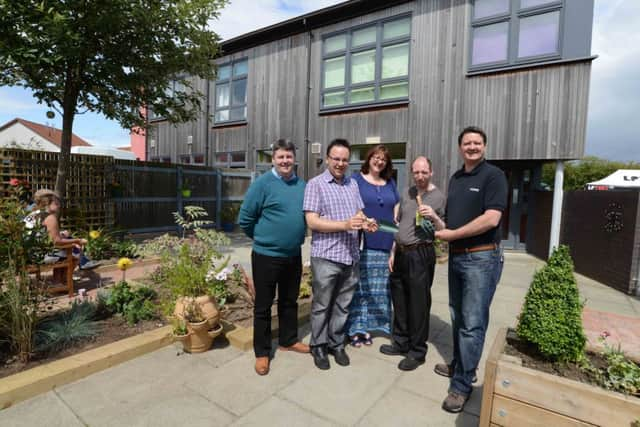ADVERTISING FEATURE: Loretto Care is there to support you


For some, it will be help in our homes as we grow older. For others, it will be more intensive care to cope with mental health issues, a disability, addictions or homelessness.
Whatever your care and support needs, Loretto Care can help you.
Advertisement
Hide AdAdvertisement
Hide AdLoretto, which is part of Wheatley Group, has 35 years’ experience in providing care and support and runs 17 different services across 38 bases in six different local authority areas.


On any given week, its dedicated trained staff support over 2000 people to get the most out of life by helping them design a support plan, which focuses on the outcomes they are looking to achieve in their life.
“At Loretto we see the person, not the issue,” says Louise Dunlop, Loretto Care Development Lead.
Care is provided either through services wrapped around people in their own home or in residential services, such as Loretto’s homeless accommodation in Falkirk and Grangemouth or their ground-breaking service for people with alcohol-related brain damage in Glasgow.
Advertisement
Hide AdAdvertisement
Hide AdLouise said: “We really do work with a wide range of people, helping them access the level and type of support that’s right for them. What runs through everything we do is the focus our staff put on supporting people to build confidence and resilience and lead as happy and independent a life as they can.”


For Loretto, working successfully in partnership with others, including families and carers, is key to delivering positive outcomes for people who need support.
“One of the areas we have a strong track record in is homelessness services,” said Louise. “But homelessness is always just one aspect of what’s going on in people’s lives. So first it’s about helping them feel safe and secure with accommodation and then it’s about working with them on their own personal development, helping them tackle any addictions, manage mental health issues and getting ready for a tenancy, for work or training.
“It’s only by working closely with the person and their family as well as with health, social work and other voluntary agencies that we’re able to achieve that.”
Advertisement
Hide AdAdvertisement
Hide AdJoining Wheatley Group, Scotland’s leading housing and care organisation, in 2013, has enabled Loretto to bring much more to its communities than it ever could before.
One example is Wheatley Pledge, a scheme which incentivises Wheatley’s contractors and suppliers to do more for disadvantaged communities by creating jobs and training places for local people or by carrying out voluntary projects. Since 2013, over 200 new job opportunities have been created in this way for people served by Wheatley and its partner organisations.
It’s thanks to Wheatley Pledge that people at Loretto’s Grangemouth services are now enjoying a new sensory garden, complete with fruit trees and a scented area. The work was completed by Mackenzie Construction as part of their commitment to the Pledge. The garden is used by people at Loretto Care’s Grangemouth services which supports adults with learning disabilities and Inchyra Place which supports people experiencing homelessness.
Louise said: “The goal is to support people to move on to permanent accommodation which they can then sustain and help them build skills to get them tenancy ready and job ready.
Advertisement
Hide AdAdvertisement
Hide Ad“Working closely with people and other agencies is key. By working in partnership with social work and health we can positively reduce the amount of time in hospital due to mental health issues.
“Not only are we able to spot the signs at an early stage and then call on the support of social work or health but we educate people to recognise and manage their own well-being. It’s about giving them control.”